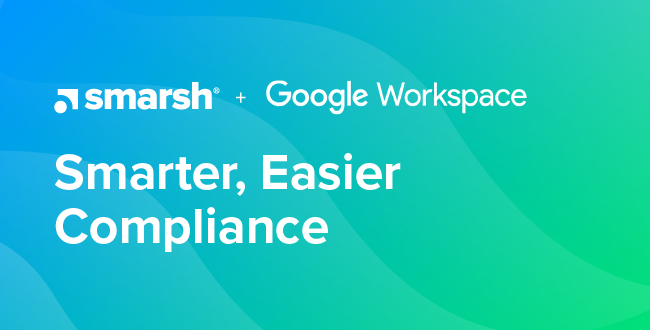Ensuring compliant productivity in the modern workplace
We live and work in a digital world and nowhere is that more apparent than in the workplace. Technology has changed almost every facet of working life, especially in the ways that we communicate with one another and within our teams.
Collaboration platforms like Slack, Workplace by Facebook, and Microsoft Teams offer employees a means of communication that suits the demands of the modern workplace. By incorporating key functions such as instant messaging, group conversation streams and information tagging, collaboration platforms are making companies across the world second guess the suitability of e-mail – a technology that has remained largely unchanged for more than two decades.
Cutting edge and highly extensible, these collaboration tools have quickly become synonymous with young, dynamic, productivity-driven offices. And with industry-leader Slack recently being valued at $7.1 billion, we can rest assured that these platforms are here to stay. Moreover, as there are record levels of younger demographics entering the workplace in the US and UK, many of the world’s largest companies now have a workforce which is accustomed to fast-paced and dynamic communication.
Despite this trend, fears over regulatory and compliance issues have prevented many companies from adopting these valuable technologies. MiFID II and GDPR have set the business world on edge when it comes to the recording of work messages and data. Many larger companies in regulated industries have made an effort to steer clear of these technologies in favor of e-mail, a much simpler form of communication to archive.
The issue is that Slack has always been available to download for free. Their business model is to offer a lite-version of their much more powerful enterprise product, with the hope being that individual teams within a company will start to use the basic version and be won over by its boost to productivity. Incumbent tech giants hoping to get their foot in the door are now doing the same. Microsoft announced this year that a lite-version of their collaboration tool, Microsoft Teams, would also be available for free.
Herein lies the Catch 22: Ignoring the need to integrate collaboration tools due to fears of compliance issues will lead to compliance issues.
The rules set out in MiFID II and GDPR mean that companies need to have complete oversight over their employees’ communications and must archive those conversations in a structured way. If companies refuse to adopt collaboration platforms and fail to put in place systems that are able to record, archive, and supervise their messages, they leave themselves vulnerable. The only way to ensure compliance issues do not arise is to adopt an archiving system that is capable of contextually handling the multi-media messages and various file formats that collaboration tools allow people to use.
Smarsh recognizes that these platforms are not going anywhere. We are also aware of the demands of the modern workplace, and that these tools give employees the ability to keep up with the fast-paced demands of modern business. Fears over compliance should not get in the way of the enhanced productivity that these tools can offer. That is why we have focused on ensuring our tailored suite of archiving solutions are fully compatible with collaboration platforms.
Seeking to maximize productivity should be the aim of any company, it is our aim to ensure that compliance issues do not hinder companies from doing so.
